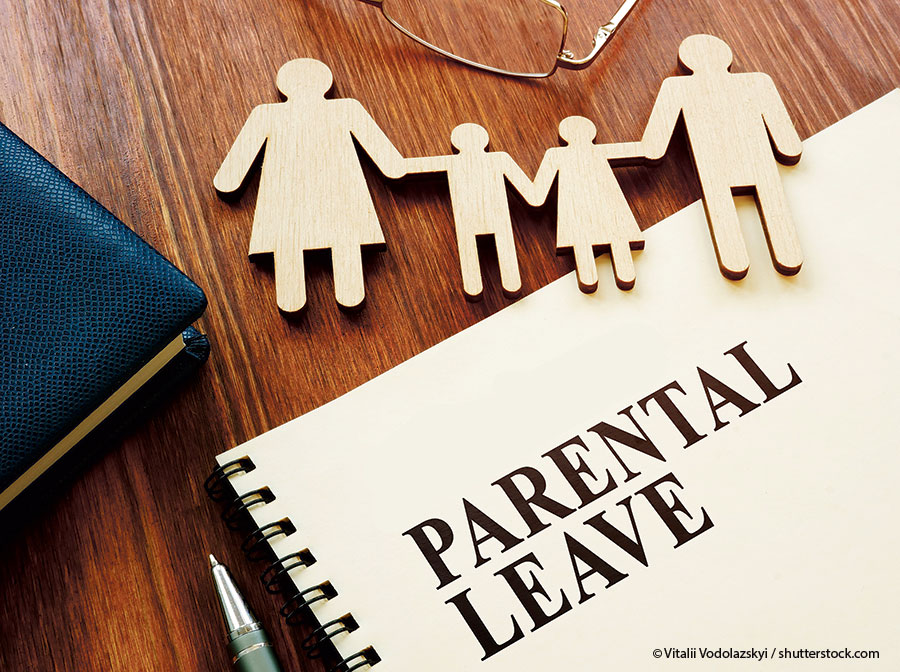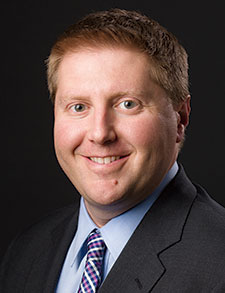 The benefits of offering parental leave for medical residents are countless, according to Evelyne Kalyoussef, MD, associate professor and director of comprehensive otolaryngology–head and neck surgery in the department of otolaryngology at Rutgers New Jersey Medical School in Newark. “Improved mental health and the well-being of the caregiver/physician only improve the care given to our patients,” she said.
The benefits of offering parental leave for medical residents are countless, according to Evelyne Kalyoussef, MD, associate professor and director of comprehensive otolaryngology–head and neck surgery in the department of otolaryngology at Rutgers New Jersey Medical School in Newark. “Improved mental health and the well-being of the caregiver/physician only improve the care given to our patients,” she said.
Explore This Issue
March 2023Several medical residency parental leave policies have been introduced, but despite the numerous benefits, challenges persist around the implementation of a standardized parental leave program for otolaryngology residents in the United States.
Current Policies
The American Council for Graduate Medical Education (ACGME) parental leave policy went into effect in July 2022, a year after the updated policy from the American Board of Medical Specialties (ABMS) took effect. ACGME mandates that sponsoring institutions offer leave policies that include a minimum of six paid weeks off for medical, parental, and caregiver leave at least once and at any time during an ACGME-accredited program. Meanwhile, the American Board of Otolaryngology–Head and Neck Surgery (ABOHNS) posted its updated policy on its website in March 2021.
[Parental leave for residents] is long overdue, even though our capitalistic healthcare system isn’t quite ready.
—Evelyne Kalyoussef, MD
“In the past, the ABOHNS policy on resident leave limited the total leave of absence for any one year during training to six weeks,” explained Eric Dobratz, MD, professor and director of the division of facial and reconstructive plastic surgery in the department of otolaryngology–head and neck surgery at Eastern Virginia Medical School in Norfolk. ABMS and then ABOHNS have changed their policies to state, “to allow for Board eligibility, the total of such leaves and vacation may not exceed six weeks in any one post graduate year (PGY) with the following exception: for one year during residency training, a resident can take parental, caregiver, or medical leave for up to six weeks with the balance of time up to a total of eight weeks (leaves plus vacation) used for vacation time.” Dr. Dobratz noted that the various departments and institutions develop their own policies on how this type of time is to be structured and used, as well as how it is to be paid for.
Wins and Challenges
“Our residents who have chosen to become parents during training have found parental leave invaluable,” said R. Peter Manes, MD, associate professor of surgery and residency program director in the division of otolaryngology at the Yale School of Medicine in New Haven, Conn. “The ability to spend time with their newborn child greatly improves [the residents’] well-being and their ability to find an appropriate work–life balance. This makes them better trainees, better physicians, and better people.”
“Surgical residency is a challenging time for resident families, and providing this type of leave can have long-lasting benefits for the parent and child and, as an extension, the residency program,” said Johnathan D. McGinn, MD, vice chair and professor of otolaryngology–head and neck surgery, and residency program director at Penn State Hershey Medical Center. He added that because many residency programs have well-established rotations and service needs, maternity leave is predictable, and so programs can be flexible in their schedules to accommodate it.
There are also challenges to offering maternity and care leave to residents, however.
“These challenges include arranging coverage, lost education for the resident on leave, and a stress to remaining residents (especially for smaller programs and taking call),” said Stephen S. Park, MD, the G. Slaughter Fitz-Hugh Professor and chair in the department of otolaryngology at the University of Virginia in Charlottesville. Generally, the resident doesn’t make up the missed time when they return. “Loss of educational opportunities can be a concern for the marginal resident, although less so for the exceptional resident,” Dr. Park said.
Dr. Kalyoussef explained that healthcare systems have been slower to respond to the ACGME’s policy that mandates the sponsoring institution (and therefore its residency programs) to provide a one-time leave of a minimum of six weeks of approved medical, parental, and/or caregiver time—particularly as it should begin on the day the resident is required to report to work.
“Often, work benefits such as insurance and paid sick time that are offered through HR departments of large healthcare systems don’t take effect for 60 to 90 days after the start of their employment,” she said. In addition, depending on each state’s policy, residents may not qualify for family and medical leave time until they’ve worked 20 weeks. “For most PGY2 through PGY5 students who started their programs as a PGY1, this won’t be an issue. But for those in PGY1 or residents who have transferred to another program, it will be harder to determine how much paid leave they qualify for or whether their health benefits are active and will provide maternity coverage.”
Dr. Dobratz noted that challenges exist at an institutional level with human resources (HR) policy changes that may need to be made and figuring out which parts of leave are paid time off versus nonpaid time. “There may also be state regulations that affect institutional leave policies for parental leave, and these policies may conflict with the ABOHNS leave policy,” he says.
Additionally, Dr. Kalyoussef added, there’s little guidance for residency program directors on how to navigate the challenges of being one person short and how to make sure the person who has taken six weeks off still has an equitable training experience.
Parental Leave in Otolaryngology
Parental leave is used by all otolaryngology residents to whom it applies, said Dr. Park. “Residents seem to deeply appreciate it, and nearly every resident in recent years has taken the allotment.” He noted that it’s important to track the requirements by the ABOHNS, however, because they may be different than those from local graduate medical education offices.
According to Brad deSilva, MD, residency program director and vice-chair for education in the department of otolaryngology–head and neck surgery at Ohio State University in Columbus, residency training is a finite period and residents have specific requirements for obtaining competencies for various surgical procedures and skills. “Extending their residency training isn’t always feasible, as the resident physician has goals of fellowship training or beginning their clinical practice following their expected graduation date.”
The ABOHNS policy “allows for eight weeks of parental leave during a given year of residency training,” Dr. deSilva said. “The ABOHNS has worked to provide parental leave while maintaining the ability for the resident physician to still meet all of their competencies and key indicator surgical case logs for an on-time graduation from their residency training.”
Dr. McGinn explained that the revised parental leave policy from the ABOHNS may help address the concern that parental leave can have a downstream effect, as it requires that training be extended to make up for lost time in residency while maintaining eligibility for board certification. “The policy clearly defines residency time requirements and the possibility of additional time off once during training to allow for parental leave without requiring training extension.”
The greatest challenges in otolaryngology revolve around accommodating clinical needs, educational experience, and equity among residents, Dr. McGinn said, adding that providing parental leave while minimizing the impact to other trainees requires planning as well as a program culture that supports the importance of this leave.
Dr. Kalyoussef noted that navigating individual institutions can sometimes be problematic, however. “There’s very little formal guidance from our residency review committee, and it’s often referred back to each program’s individual institutional policy,” she said. “Most HR departments will talk to only the beneficiary/employee, so as a manager it’s been harder to identify what benefits your residents qualify for,” she said. “In addition, while the focus is often on the six weeks of maternity/paternity leave once the baby is delivered, what happens in the weeks and months beforehand? How do you plan the resident’s rotation and call schedule to allow for a healthy pregnancy?”
One thing that is universal, said Dr. Kalyoussef, is the consensus that residency parental leave is an important and essential right. “It’s long overdue, even though our capitalistic healthcare system isn’t quite ready,” she said.
